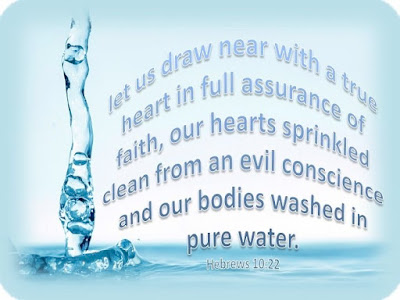And behold, there was a man in Jerusalem whose name was Simeon, and this man was just and devout, waiting for the Consolation of Israel, and the Holy Spirit was upon him. And it had been revealed to him by the Holy Spirit that he would not see death before he had seen the Lord’s Christ. So he came by the Spirit into the temple. And when the parents brought in the Child Jesus, to do for Him according to the custom of the law, he took Him up in his arms and blessed God and said:
Hence, he also says to him, “Now you dismiss your servant, Lord, in peace.” For, as long as I did not hold Christ, as long as my arms did not enfold him, I was imprisoned, and unable to escape from my bonds.” But this is true not only of Simeon, but of the whole human race. Anyone who departs from this world, anyone who is released from prison and the house of those in chains, to go forth and reign, should take Jesus in his hands. He should enfold him with his arms, and fully grasp him in his bosom. Then he will be able to go in joy where he longs to go. Consider how great a saving act had taken place earlier, so that Simeon should deserve to hold the Son of God. First he had received an answer from the Holy Spirit, that “he would not see death unless he had first seen the Lord’s Anointed.”
Then he entered the temple—but not by chance, or naively. He “came to the temple in the Spirit of God.” “For, as many as are led by the Spirit of God, these are sons of God.” Therefore the Holy Spirit led him into the temple. If you wish to hold Jesus, and to embrace him with your hands, and to be made worthy of leaving prison, you too must struggle with every effort to possess the guiding Spirit and come to God’s temple. See, you stand now in the temple of the Lord Jesus—that is, in his Church. This is the temple “built from living stones.” But you stand in the Lord’s temple when your life and your conduct are worthy of the title “church.”
If you come “to the temple in the Spirit,” you will find the child Jesus. You will lift him up in your arms and say, “Now you dismiss your servant, Lord, in peace, according to your word.” At the same time, notice that “peace” has been added to the dismissal and the sending forth. For he does not say, “I wish to be dismissed,” but to be dismissed with the addition of “in peace.” This same thing was promised to the blessed Abraham: “But you will go to your fathers in peace, after you have been cared for in a good old age.” Who is the one who dies “in peace” if not he who has “the peace of God, which surpasses every perception and guards the heart” of him who possesses it? Who is the one who departs “in peace” from this world if not he who understands that “God was in Christ, reconciling the world to himself”? Who if not he in whom nothing is hostile to God or opposed to him, but who by good works has acquired all peace and harmony in himself? Thus he is dismissed “in peace” to go on to the holy fathers, to whom Abraham also went forth.
Why do I speak about the fathers? He is to go to the very prince and Lord of the patriarchs, to Jesus, of whom it is said, “It is better to be released and to be with Christ.” He who dares to say, “I live, now not I, but Christ lives in me,” he possesses Jesus. Therefore, let us pray that we too might stand in the temple, hold the Son of God, and embrace him, and that we might be worthy of release and of going on to better things. Let us pray to Almighty God, and let us pray to Jesus himself, the little child. We long to speak to him and hold him in our arms, to whom is glory and power for ages of ages. Amen.
“Lord, now You are letting Your servant depart in peace,We must seek an explanation worthy of God’s purpose as to why, as is written in the Gospel, “Simeon, a holy man and one pleasing to God, awaiting the consolation of Israel, received an answer from the Holy Spirit that he would not perish in death before he saw the Lord’s Anointed.” What did he gain from seeing Christ? Did he have only this promised to him, that he would see him, and derive no profit from seeing him? Or is some gift worthy of God concealed here, a gift that the blessed Simeon both merited and received? “The woman touched the fringe of Jesus’ garment and was healed.” If she derived such an advantage from the very edge of his garment, what should we think of Simeon, who “received” the infant “into his arms”? He held him in his arms, and kept rejoicing and exulting. He saw that the little child he was carrying had come to release captives and to free Simeon himself from the bonds of the body. Simeon knew that no one could release a man from the prison of the body with hope of life to come, except the one whom he enfolded in his arms.
According to Your word;
For my eyes have seen Your salvation
Which You have prepared before the face of all peoples,
A light to bring revelation to the Gentiles,
And the glory of Your people Israel.” (Luke 2:25–32)
Hence, he also says to him, “Now you dismiss your servant, Lord, in peace.” For, as long as I did not hold Christ, as long as my arms did not enfold him, I was imprisoned, and unable to escape from my bonds.” But this is true not only of Simeon, but of the whole human race. Anyone who departs from this world, anyone who is released from prison and the house of those in chains, to go forth and reign, should take Jesus in his hands. He should enfold him with his arms, and fully grasp him in his bosom. Then he will be able to go in joy where he longs to go. Consider how great a saving act had taken place earlier, so that Simeon should deserve to hold the Son of God. First he had received an answer from the Holy Spirit, that “he would not see death unless he had first seen the Lord’s Anointed.”
Then he entered the temple—but not by chance, or naively. He “came to the temple in the Spirit of God.” “For, as many as are led by the Spirit of God, these are sons of God.” Therefore the Holy Spirit led him into the temple. If you wish to hold Jesus, and to embrace him with your hands, and to be made worthy of leaving prison, you too must struggle with every effort to possess the guiding Spirit and come to God’s temple. See, you stand now in the temple of the Lord Jesus—that is, in his Church. This is the temple “built from living stones.” But you stand in the Lord’s temple when your life and your conduct are worthy of the title “church.”
If you come “to the temple in the Spirit,” you will find the child Jesus. You will lift him up in your arms and say, “Now you dismiss your servant, Lord, in peace, according to your word.” At the same time, notice that “peace” has been added to the dismissal and the sending forth. For he does not say, “I wish to be dismissed,” but to be dismissed with the addition of “in peace.” This same thing was promised to the blessed Abraham: “But you will go to your fathers in peace, after you have been cared for in a good old age.” Who is the one who dies “in peace” if not he who has “the peace of God, which surpasses every perception and guards the heart” of him who possesses it? Who is the one who departs “in peace” from this world if not he who understands that “God was in Christ, reconciling the world to himself”? Who if not he in whom nothing is hostile to God or opposed to him, but who by good works has acquired all peace and harmony in himself? Thus he is dismissed “in peace” to go on to the holy fathers, to whom Abraham also went forth.
Why do I speak about the fathers? He is to go to the very prince and Lord of the patriarchs, to Jesus, of whom it is said, “It is better to be released and to be with Christ.” He who dares to say, “I live, now not I, but Christ lives in me,” he possesses Jesus. Therefore, let us pray that we too might stand in the temple, hold the Son of God, and embrace him, and that we might be worthy of release and of going on to better things. Let us pray to Almighty God, and let us pray to Jesus himself, the little child. We long to speak to him and hold him in our arms, to whom is glory and power for ages of ages. Amen.
Origen, Homilies on the Gospel of Luke 15























